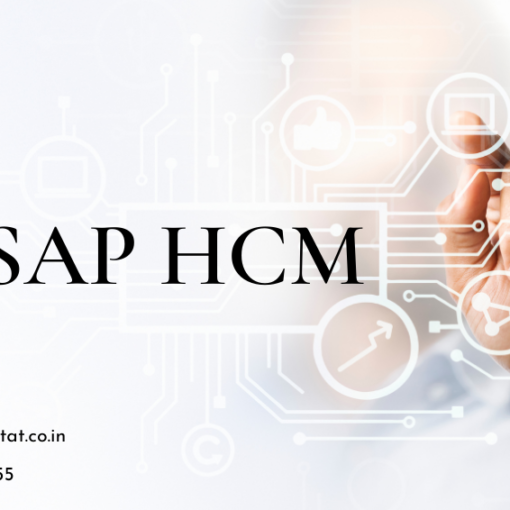ERP Systems for the Construction Industry
Enterprise resource planning, or ERP, is not limited to a single industry. Rather, it has served as a watershed moment in practically every aspect of the economy. We can define ERP for Construction Industry as the use of analytical tools and data to deliver a fail-safe business solution. It connects construction’s main function with all of the company’s other modules, including financial management, inventory management, contractor management, human resource management, bid management, vendor management, CRM, and more. It works equally well for companies of all sizes, sorts, and sectors.
An Enterprise Resource Planning system (ERP) created exclusively for construction enterprises is known as a Construction ERP. Project management, project financials, and accounting, project and portfolio analytics, resource and asset management, general and subcontractor management, payroll, and other fundamental construction business operations should all be managed by a Construction ERP.
Features of ERP application in the construction industry:
- Workflow management
- Reporting and document
- Procurement of resources
- Customer relationship management
- Ease of tender and bid management
- Productivity or performance monitoring
- Project scheduling
- Centralized database
- Inventory management
- Human resource management
- Workflow management
Benefits
1. Automation of operations
Construction firms work on a massive scale. Project management, client handling, employee management, cost estimation, and procurement management are just a few of the services they provide. The individual size of each of these operations varies depending on the size of the firm. As a result, corporate managers face a significant problem in achieving perfect management.
The task gets much easier with an enterprise resource planning solution. ERP modules automate and handle all activities with extreme precision, reducing the risk of human error.
2. Optimization of project management
In the absence of good project management, no construction company can survive long-term or gain long-term clients. Even a little fault, such as late delivery or a construction error, can result in significant and long-term costs.
The corporation, on the other hand, can efficiently handle several projects at the same time with the help of ERP software providers. The ERP program ensures greater project optimization by selecting and deploying the appropriate resource at the appropriate time and location. This entails cost containment as well as an increase in profit margin.
3. Effective internal communication
As a result, we need a good ERP solution supplier to help us increase internal communication across departments. Any ERP tool’s built-in chat forums with video interaction capability are a powerful feature. The chat forums can be utilized by all participants of a project to start team discussions or to address any important project issues. This way, all of the parties involved are informed at the same moment and without delay.
4. Ease of data transfer
As previously said, the construction sector has a large number of simultaneous operations and documentation. As a result, data management and allocation have become a difficult issue for corporate executives. When a company grows in size, this becomes more complicated.
Construction sector personnel benefit greatly from ERP database administration since it successfully centralizes data regardless of its size. It also allows for the secure and speedy flow of data throughout the organization’s departments. As a result, when needed, one may quickly locate the appropriate records.
5. Mobile friendly
Today’s ERP software companies are becoming more mobile-friendly. This is due to mobile’s widespread presence across all locations and sites. The ability to access project-related information on a mobile device streamlines the company’s overall operations.
The mobile-friendly feature of ERP software makes SMS notifications and bulk SMS communication the primary instrument for increasing business efficiency. The ability to access ERP on a mobile device means that the project is updated in real-time from all project locations.
6. Efficiency in decision making
Managers can easily make all company decisions with no flaws or delays thanks to superior data and operational centralization. Problems can be anticipated and resolved before they become a bottleneck.
7. Marks 24*7 presence
The ERP software assures that no project is delayed as a result of a resource’s absence. As a result, it ensures that all project-related inquiries and information are made available to all project members in all locations on time. It denotes a business presence that is available 24 hours a day, seven days a week. You may access all of the important papers from your mobile or laptop whenever you need them, regardless of where you are on the job. This also ensures that employees have work flexibility.
8. Improves the marketing strategies
To develop and optimize marketing tactics, an enterprise resource planning program provides in-depth data analysis. Data from diverse departments are examined on a shared platform to aid in the development and execution of strategic goals.
9. Digital documentation
The usage of ERP reduces the amount of paper used for documentation. Furthermore, the digitally saved data can be accessed from any location and at any time. Unauthorized access to papers is also reduced, preserving the privacy and secrecy of sensitive information.
10. Construction bid cost and revenue estimations
Marketers in the construction business are required to submit bids for contractual projects. The company with the best pricing wins the bid, which is based on cost estimation. When producing these cost estimations, ERP software is used. It aids in the preparation of accurate cost estimates based on the resources to be employed and other important characteristics. It also aids in the calculation of the project’s overhead liabilities. The construction industry’s AI-based ERP ensures that the real and expected costs are as close as possible.
How is ERP used in construction?
Enterprise Resource Planning (ERP) systems play a crucial role in the construction industry by integrating and managing various aspects of construction projects, including project planning, resource management, financials, procurement, and collaboration. Here are some key ways in which ERP is used in construction:
- Project Management: ERP systems provide comprehensive project management functionalities, allowing construction companies to plan, schedule, and monitor projects. They facilitate the creation of project timelines, resource allocation, budgeting, and tracking of project progress. Project managers can use ERP to monitor tasks, manage dependencies, and make informed decisions to ensure projects are completed on time and within budget.
- Resource Management: ERP enables effective management of construction resources such as labor, equipment, and materials. It helps track resource availability, utilization, and allocation across projects. ERP systems can generate reports and dashboards that provide real-time visibility into resource utilization, enabling better planning and optimization of resources.
- Financial Management: ERP systems handle financial aspects of construction projects, including budgeting, cost control, and accounting. They track project expenses, manage invoices, handle payroll, and provide accurate financial reporting. ERP can integrate with other systems like procurement and project management to streamline financial processes and ensure accurate project cost accounting.
- Procurement and Supply Chain Management: ERP systems streamline procurement processes by automating purchase orders, managing supplier contracts, and tracking material deliveries. They help maintain accurate inventory levels, optimize material purchasing, and reduce procurement costs. ERP can integrate with suppliers’ systems to facilitate electronic data interchange (EDI) for seamless communication and collaboration.
- Document Management: Construction projects involve extensive documentation, including contracts, blueprints, permits, and change orders. ERP systems provide document management capabilities, ensuring centralized storage, version control, and easy retrieval of project-related documents. This helps improve collaboration among project stakeholders and ensures the availability of up-to-date project documentation.
- Collaboration and Communication: ERP systems often include collaboration tools that enable efficient communication and coordination among project team members, subcontractors, and stakeholders. These tools can facilitate document sharing, issue tracking, and real-time communication, improving project efficiency and reducing delays.
- Compliance and Regulatory Requirements: ERP systems assist in managing compliance with regulatory requirements, industry standards, and safety regulations in the construction industry. They help track and manage permits, licenses, and certifications, ensuring that projects are conducted in accordance with legal and safety guidelines.
In summary, ERP systems in the construction industry provide comprehensive project management, resource optimization, financial control, procurement, document management, and collaboration capabilities. By leveraging ERP, construction companies can enhance project efficiency, control costs, improve communication, and ensure compliance with regulatory standards.
Conclusion
Every industry in today’s digitally sophisticated economy needs to modernize its operations with the help of software solutions such as ERP. It’s no different in the building industry. To make its operations swift, accurate, and profitable, it also needs enterprise resource planning tools.
When it comes to subscribing to ERP software vendors, however, one must make a reasonable decision. If you require any additional assistance in shortlisting a software solution beyond the information provided, please do not hesitate to contact us. We’d be delighted to help you on your way to business success.





